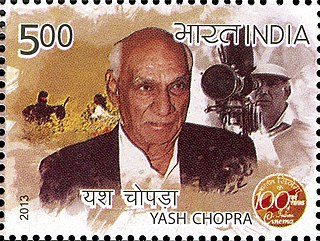A Quote by Emraan Hashmi
Sometimes I know a film might not pull the audience to the theatres and have a great collection at the box office. But I need to do these films for creative satisfaction and give something different to the audience.
Related Quotes
I like the saying: "The world is as you are." And I think films are as you are. That's why, although the frames of a film are always the same - the same number, in the same sequence, with the same sounds - every screening is different. The difference is sometimes subtle but it's there. It depends on the audience. There is a circle that goes from the audience to the film and back. Each person is looking and thinking and feeling and coming up with his or her own sense of things. And it's probably different from what I fell in love with.
Filmmakers need to give the audience that something extra, an incentive to spend money and go to the multiplex - the ticket prices are high. Otherwise they'd just stay home, buy DVDs or download movies. But if there were only big budget movies it would be impossible for the film industry to survive. So I emphasize the importance of mid-range films. But those films need the support of theatre owners. The theatre chains have to have the vision to realize the need to support smaller films for the growth of the domestic film industry.
All I've learned is that you need the studio system sometimes, if your budget is a certain size, and other films you can do independently. When I think of a studio, I generally think of distribution. Since I'm a director, I have a similar creative experience on every film I do, because I can control that. But then it's a different film, I think, as it reaches the public, depending on the way it's marketed. I don't know. I haven't learned much of anything. Sometimes you need them, sometimes you don't. Sometimes they want you, most of the time they don't.
Different directors have different techniques in the use of films. Cronenberg is very different in the way he works with film, and how he takes the audience into his films is different than how Peter Jackson would do that or Jon Stewart. So, if you go between those artists, you shift gears and you kind of fall into the working method of that film.
Making a show is also economics. Because the irony is, or the shame of it is, you cannot create a show instantaneously. It needs to be massaged. You need to see who is relating to who. How is it working with the audience? You need to give it a chance for the audience to find it, because there are so many outlets. And the audience doesn't know where to go.




































